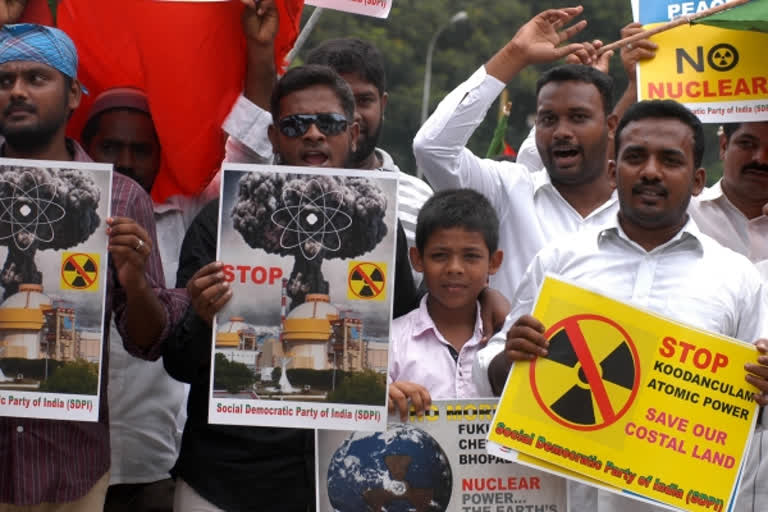Chennai:Anti-nuclear power activists drew a parallel between the staying the implementation of three farm laws and setting up of a committee by the Supreme Court to negotiate with the protesting farmers and with the decisions taken by the government during their protest against the nuclear power plant at Kudankulam.
For three years (2011-2014) the People's Movement Against Nuclear Energy (PMANE) protested peacefully at Idinthakarai village in Tirunelveli district against the building of a nuclear power plant at nearby Kudankulam.
"The central government had then set up a committee under the Chairmanship of A.E. Muthunayagam, a space scientist. In the case of farmer's protest, instead of the central government, the Supreme Court has set up a committee," S.P. Udayakumar, Coordinator, PMANE, told media.
The Muthunayagam committee was set up to allay the fears of protesters against the nuclear power project.
He also said the Tamil Nadu government too set up a committee after it had ordered a stoppage of construction activities at the plant site.
Udayakumar said, the members of the committee appointed by the apex court to deliberate on the three farm laws had already expressed their support for the legislation.
The anti-nuclear activists also said they were called anti-nationals, supporters of foreign powers, funded by foreign powers like the protesting farmers who were called Khalistanis and anti-nationals.
India's nuclear power plant operator Nuclear Power Corporation of India Ltd. (NPCIL) was then building two 1,000 MW atomic power reactors at Kudankulam.
Villagers fearing for their lives and safety in case of any nuclear accident started their protest putting a stop on the project work.
"The protest against the Kudankulam Nuclear Power Project (KNPP) is the mother of all protests against projects (that harm) the environment," G. Sundarrajan of NGO Poovulagin Nanbargal told media.
Sundarrajan had fought legal cases against the KNPP till the Supreme Court.
He said the peaceful anti-KNPP protest laid the template for other protests against--the ban on Jallikattu (the bull taming sport of Tamil Nadu), hydrocarbon projects and the Sterlite plant in Tamil Nadu.
"I am a follower of Mahatma Gandhi. It was he who proved to the world by taking up an issue and protest persistently against it. The protest template was to congregate people at one place, educating them and also getting educated," Udayakumar said.
Looking back at the anti-KNPP protests he said there were two options before us then - to congregate people and protest at Kudankulam or at Idinthakarai.
"We decided on Idinthakarai as the protest spot at Kudankulam was located at a central place which would have hindered traffic flow. The police would have surrounded us from day one," Udayakumar said.
The PMANE Coordinator Udayakumar ever since his return from the US in 2001 had been writing and preaching against the nuclear power.
"Initially there was a lukewarm response. There came a moment when people decided to look at the issue. They congregated at Idinthakarai," Udayakumar said.
With their goal-stopping the construction of the nuclear power plant- they overcame the caste, religious differences.
"It was a fasting protest. People of the three religions - Hindu, Christianity and Islam- were known to fast on various occasions and it was not new for them," Udayakumar said.
